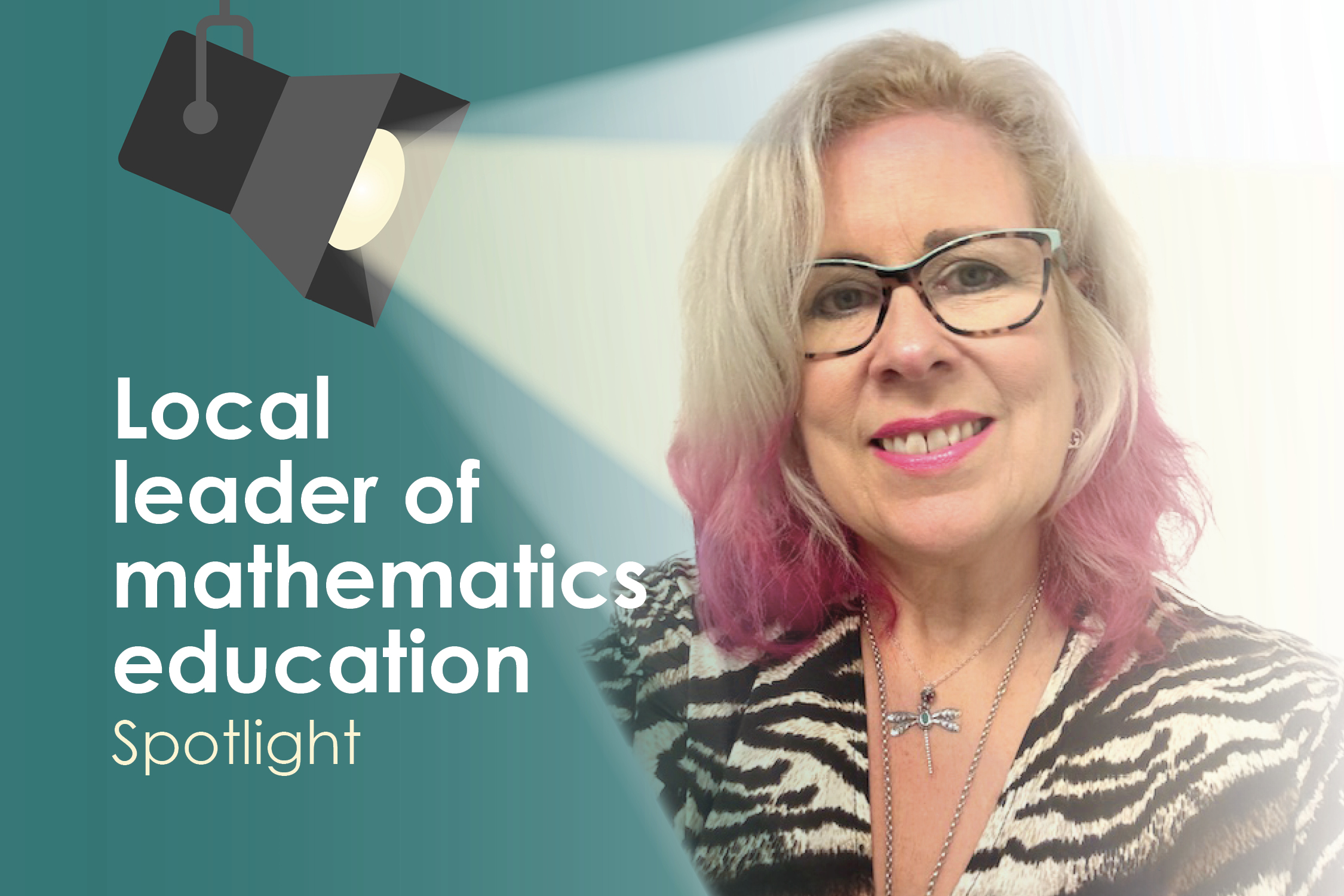Spotlight on LLMEs – Early Years SKTM Programme
Hear from Helen Hackett about what it’s like to lead an Early Years Specialist Knowledge for Teaching Mathematics (SKTM) Programme cohort for her local Maths Hub
13/11/2025

Local leaders of mathematics education (LLMEs) are the experienced teachers who lead Maths Hubs' professional development at a local level. They are experts in maths teaching and professional development, bringing together a knowledge of their local context with an understanding of the national picture of maths teaching.
Any great teacher with a passion for developing others has the potential to become an LLME and recruitment for new LLMEs opens soon.
In our ‘Spotlights’ series, we speak to LLMEs across the country, in all phases, to learn more.
Helen Hackett is a Mastery Specialist, Assistant Maths Hub Lead and LLME with Central Maths Hub. She has been involved with SKTM programmes since their inception and now leads on the Early Years Specialist Knowledge for Teaching Mathematics Programme.
How did you become involved in the Early Years SKTM?
I have been involved in SKTM programmes since the beginning, but noticed they were not really meeting the needs of Early Years (EY) teachers. Having started my career in EY and SEND, this has always been where my passion has been, so I am thrilled to be part of this initiative. I initially led on a Work Group called Firm Foundations, which was really well received by EY practitioners because it was designed specifically for them. Since then, I’ve delivered on both the Number and Spatial Reasoning pathways of this SKTM and have trained other LLMEs to lead this work too.
What does your role as a Cohort Lead involve?
I attend the national LLME development sessions which are run by the NCETM – it’s always interesting to learn from people doing the same thing in other hubs across the country. We have the opportunity here to share what’s working well across the programme and discuss how we’ve tackled any challenges. I find these national sessions great for extending my own knowledge, especially when we hear from guest speakers or engage with further reading.
It’s my role to contact each participant and their school to confirm details and provide an overview of the programme. They’re then invited to join an online community, where I start off with some ‘virtual’ ice-breaking tasks before the first face-to-face workshop. This is also where I share reminders for sessions and any resources or ideas for further reading with the group.
I arrive at the workshop sessions with resources and slides, but I often make adaptations during the day, based upon the cohort and their needs.
Why are you so passionate about the Early Years SKTM?
There is something very special about this group, and I’d be very sad not to lead on this work! I think that is mainly down to the participants – they are always very enthusiastic and engaged. They talk to each other outside of sessions, sharing photos and examples of activities they’ve tried. Most have never had any EY-specific professional development at all, so they really value this programme.
What impact does the programme have on participating teachers?
Each year, when watching their end of year presentations, I can’t help but feel very proud of the participants. They often arrive on day one feeling rather anxious or uncertain, but over the year they begin to express more opinions, ask questions and share experiences. By that final day they are so confident.
I also see mindsets shift, especially in relation to their expectations. At the start, some participants have limited expectations for certain children — some even use labels such as, ‘my less-able children’ or ‘my greater-depth children’. By the end of the year, they have moved away from these limiting labels, and report how the activities and approaches trialled across the year have worked well for all of the children in their class.
What would you say to a teacher considering taking part in an SKTM programme?
It’s a fantastic opportunity to join a community of like-minds, some who can share their wealth of experience and others who may be earlier in their careers but have a real enthusiasm. Having dedicated time out of school to spend with other teachers, talking about maths, is very powerful. Some might see it as a luxury, but I believe it’s a necessity if you want to enhance learning.
Across the country, every EY teacher will tell you that Reception children are coming into school with fewer skills, less knowledge and more challenges, so it’s more important than ever that EY teachers have specialised support to manage this changing landscape. All the maths that children need to access in Key Stage 2 and beyond is based on learning that was started in the Early Years, so we need to value this EY-specific PD.
Ready to take the next step in your teaching career?
Find out how local leaders of maths education (LLMEs) lead Maths Hubs work locally – and how you can develop the expertise to become one.
Discover